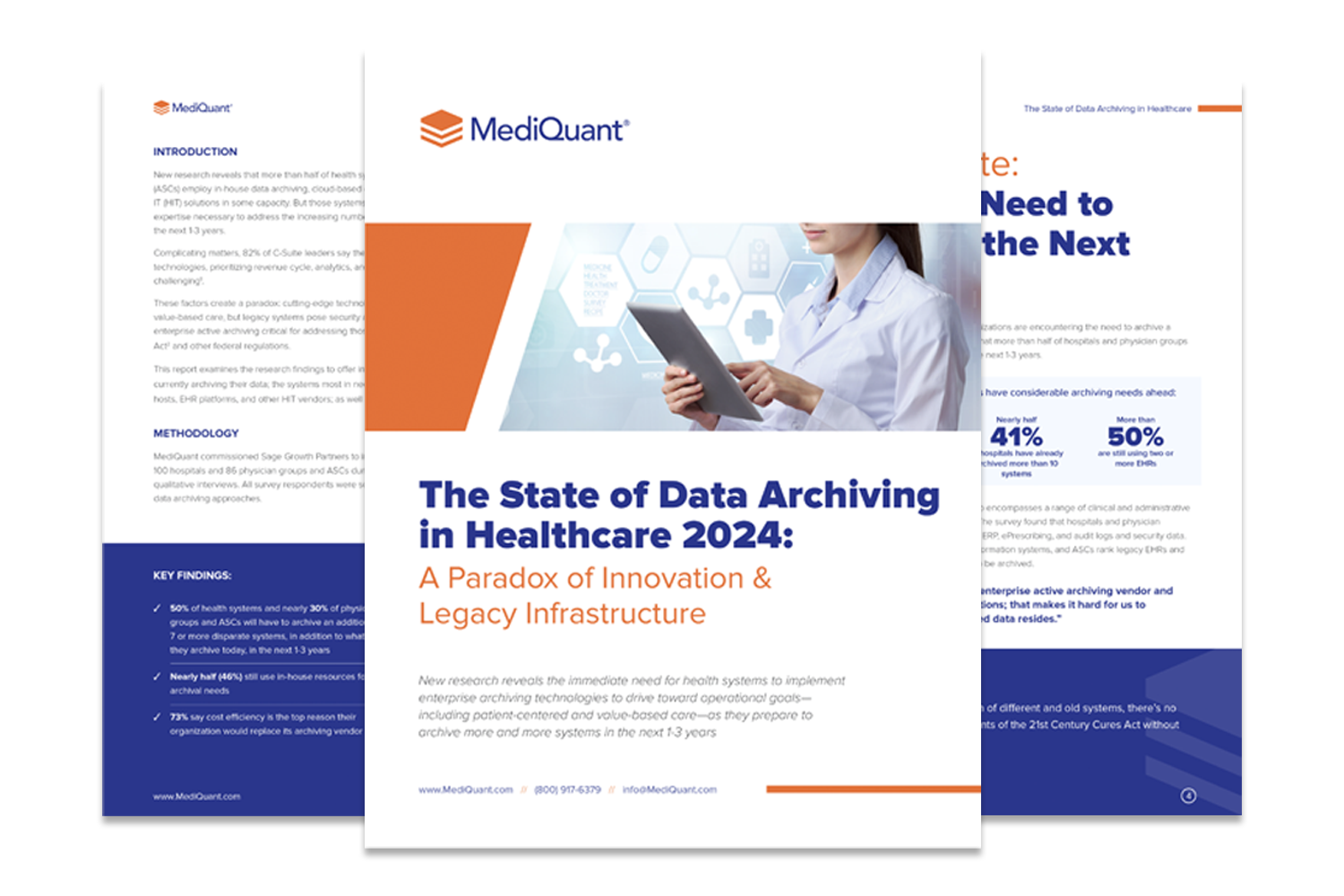After migrating to a new Electronic Health Records (EHR) system, your organization must answer two vital questions. First, how do you retain the old health information in compliance with federal and state laws? Second, what is the most cost-effective way to provide quick access to historical patient data?
You need to decide whether to keep the legacy system running, perform EHR data migration, carry out a complete data conversion, or create a smart, active data archive.
While leaving your legacy application running may seem like the most straightforward option, it may also be the most costly. Imagine that you may need to retain records from 6 to 25 years, depending on your state’s legal requirements. To help you reduce the costs of maintaining historical medical records, we will be looking at a breakdown of the costs and how to minimize them.
1. Servers and Hardware
The cost of maintaining hardware, servers, and network infrastructure continues to increase annually. Your organization will spend money troubleshooting and servicing obsolete technology. This could go on for decades, depending on the length of the required health record retention period.
If your facility has been in existence for many years, you could have many legacy clinical and admin applications residing on different servers. On the other hand, a more cost-effective solution will bring together all the data-silos and reduce infrastructure costs incurred to access historical patient data.
2. Applications and Operating Systems
Legacy applications still require support and maintenance by the software vendor. Even if the application is not being used daily and is strictly for viewing and reading data, the hospital has to continue paying maintenance fees. The yearly cost of maintaining an EHR ranges between $4,000 and $8,000.
In contrast, specialized data archiving requires a much lower recurring fee. The legacy application will be retired, and the data extracted and migrated to an active archive for instant data access. In some cases, practices achieve a return on investment within two years or sooner.
3. Retaining Competent Users
Experienced users of your legacy health applications will eventually leave. While you may recruit fresh hands, it will become increasingly difficult to find users who can operate the legacy app to access medical records. Also, training new users to use outdated technology will not be cost-effective.
A more productive and economical solution will be to develop an intuitive data archive. This will bring all the legacy data together and make it easy for any user to view it from a single dashboard. Smart data archives make information accessible to all clinicians, and they don’t require the recruitment of tech experts or frequent training and retraining of new staff.
4. Maintenance Contract
Keeping data in old systems increases the risk of data loss due to the degrading of hardware. Old hard drives can stop working, locking up gigabytes of data. This will make you resort to keeping a maintenance contract for your old servers. If you avoid this because of the cost, you may incur costly legal fines if your organization can’t provide a medical record when needed by auditors or a court of law.
To avoid paying litigation costs, legal fines, or data recovery costs, which can run to tens of thousands of dollars, create a health data archive. Your archive will save you time and eliminate unnecessary spending on avoidable technical or legal fees.
5. Risk of Data Breaches
Keeping legacy systems active increases the risk of cyberattacks. In cases where the system resides on an outdated operating system, hackers may gain unlawful access to such systems’ protected health information. With IBM revealing that the cost of a data breach in major providers has risen to over $7 million, it’s essential to adopt best practices and embrace data conversion and archiving. Putting all your healthcare data in a single well-secured archive will drastically reduce cybersecurity risks.
To learn more about reducing the cost of maintaining legacy health records, contact the data archiving experts at MediQuant for a free consultation.


